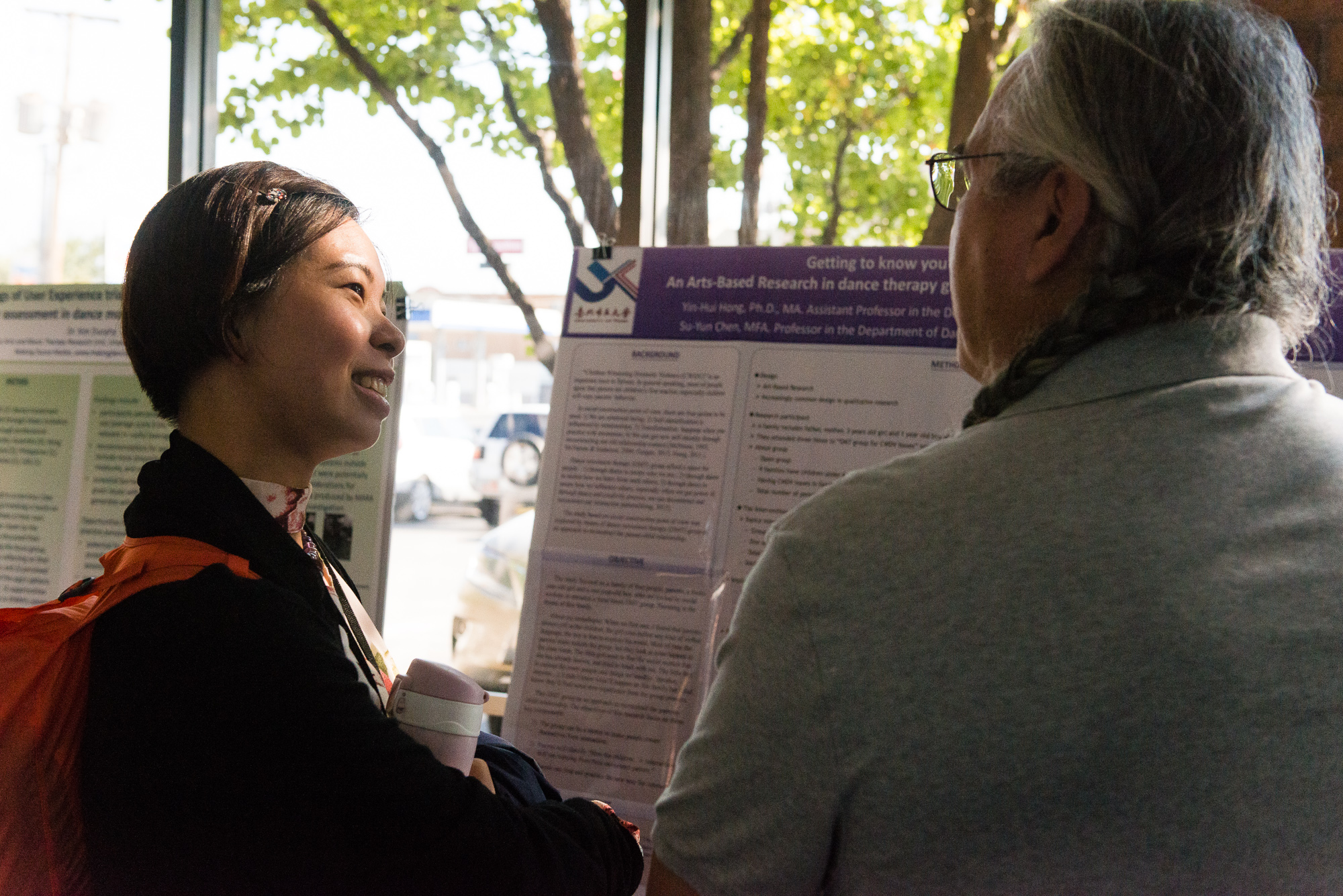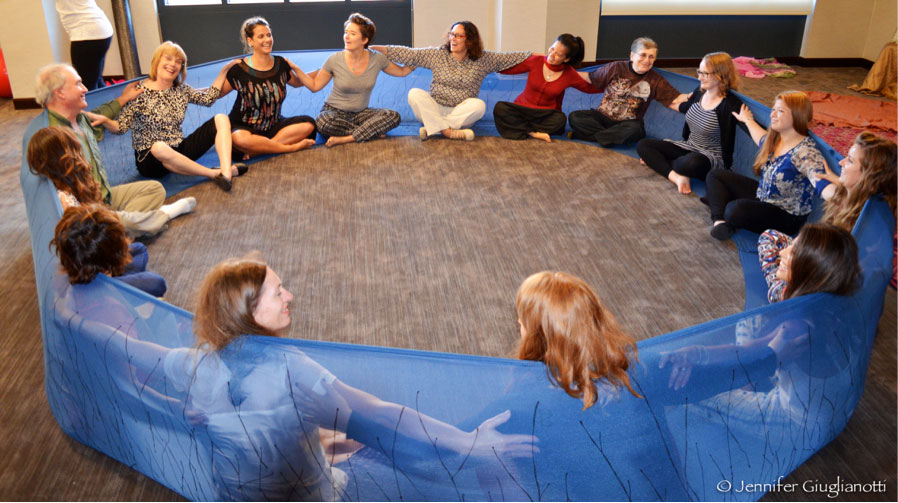About the American Dance Therapy Association
The American Dance Therapy Association was founded in 1966 as an organization to support the profession of dance/movement therapy and is the only U.S. organization dedicated to the profession of dance/movement therapy. The purpose of the ADTA is to establish, maintain, and support the highest standards of professional identity and competence among dance/movement therapists by promoting education, training, practice, and research. The Association provides avenues of communication among dance/movement therapists and those working in related fields and increases public awareness of dance/movement therapy.
The ADTA:
- Advocates nationally and internationally for the development and expansion of dance/movement therapy training and services.

- Supports chapters and regional study groups throughout the United States.
- Stimulates communication among dance/movement therapists through social media, publication of the American Journal of Dance Therapy, and the ADTA newsletter.
- ADTA has members throughout the United States and around the world.
- Holds an annual conference and sponsors webinars for continuing education, networking and the advancement of scholarship in DMT.
- The ADTA is an Approved Continuing Education Provider (ACEP) and may offer NBCC-approved clock hours for events that meet NBCC requirements. The ACEP solely is responsible for all aspects of the program.
- The ADTA is an approved continuing education provider for New York Licensed Creative Arts Therapists.
Dance Movement Therapy Definition
- Dance/Movement Therapy is defined by the American Dance Therapy Association (ADTA) as the psychotherapeutic use of dance, movement, body awareness, and embodied communication, to foster healing and wellness for all individuals, families, and communities.
Mission Statement:
- The mission of the American Dance Therapy Association is to uphold the psychotherapeutic benefits of dance and movement through professional development, advocacy, research, and service.

Vision Statement:
- Access to care for all individuals, families, and communities through harnessing the power of dance and movement through a psychotherapeutic lens.
Inclusion Statement:
- The American Dance Therapy Association respects, values, and celebrates the unique attributes, characteristics, disabilities, abilities, and perspectives of all individuals and the collective. We believe that an environment of inclusion enables innovation, empowers members, unites communities, and encourages appreciation. We affirm our commitment to embracing individuals of all races, ethnicities, spiritual beliefs, abilities, gender identities and expressions, sexual orientation, ages, socioeconomic status, immigration and military status, and political views. We strive to be an inclusive organization that translates thought to action by incorporating the perspectives and contributions of all and integrating the needs and viewpoints of our diverse community into the planning, implementation, and action of our strategic plans.
Values Statement:
Our values & how they are expressed
- Integrity
Practicing honesty, transparency, and dignity to guide us without harming or burdening others.
- Embodiment
Respecting the rights and wisdom of all bodies.
- Authenticity
Collaborating to foster safer, braver spaces for genuine expression.
- Transgenerational Recognition
Honoring our past, present, and future narratives.
- Community and Connection
Creating a place to belong, engage, collaborate, and build.
- Justice, Equity, Diversity, Inclusion
Continuously embracing differences, valuing, and respecting each person’s humanity, and committing to accountability by actively participating in anti-racist/anti-biased work.
- Liberation
Moving us towards reclamation and empowerment through dance and creativity.
ADTA & DMTCB: Guardians of Professionalism

- Professional dance/movement therapists are registered, and board certified by the Dance/Movement Therapy Certification Board (DMTCB).
- The ADTA and DMTCB set stringent standards of education, experience, and continuing education for professional Dance/Movement Therapists.
- ADTA sets and monitors standards for masters degree programs and alternate route training that prepare people to become Dance/Movement Therapists.
Standards and Ethics: ADTA Code of Ethics
Members of ADTA and R-DMT or BC-DMT credentialed dance/movement therapists are required to adhere to the ADTA Code of Ethics and Standards of Ethical Practice. The Code defines responsible professional behavior and rules of conduct to protect the public. The Standards of Ethical Practice are specific guidelines that serve as a model for professional dance/movement therapy practice.
More information on the ADTA Code of Ethics
|